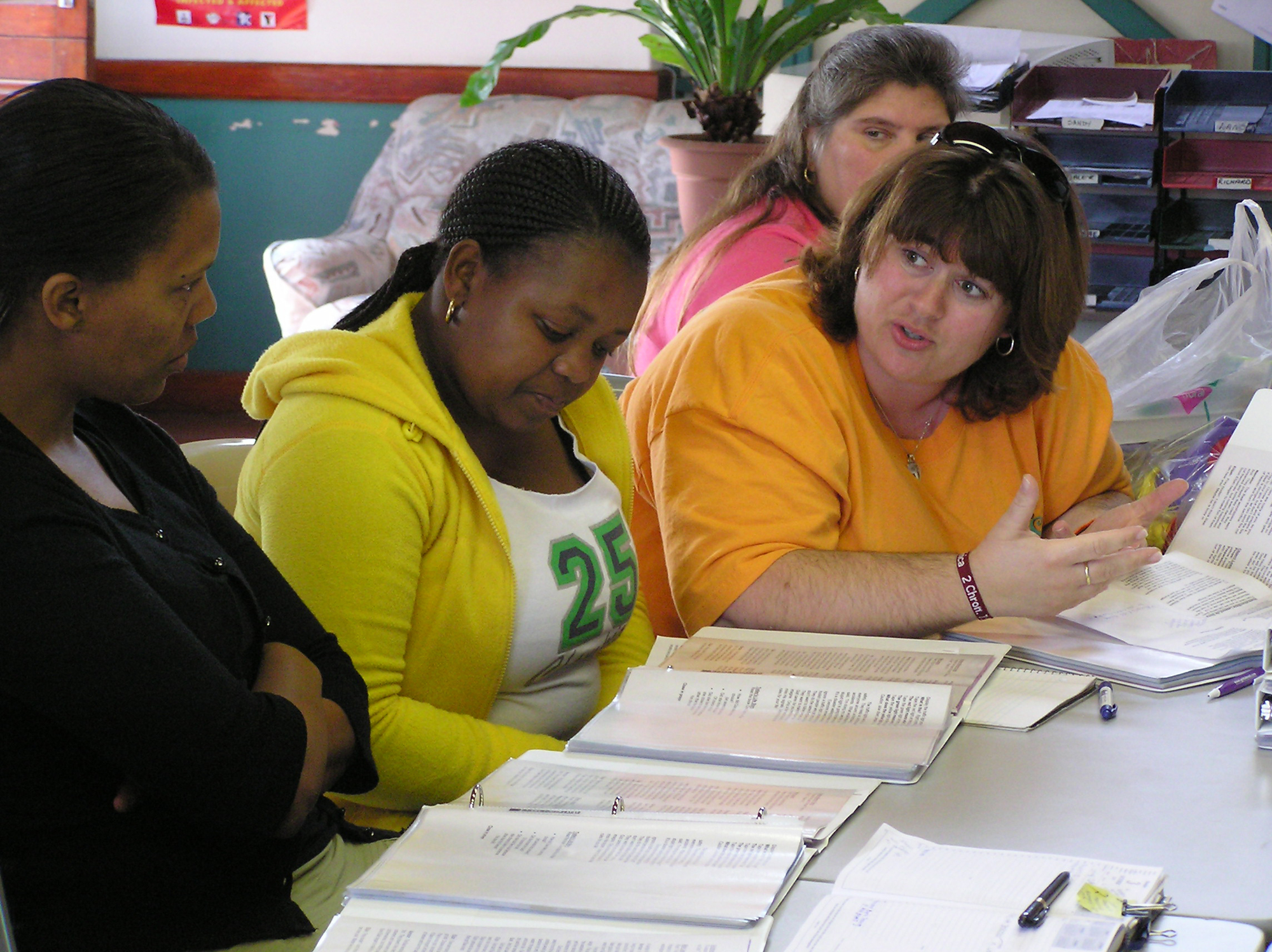
EDITORS’ NOTE: World AIDS Day will be Friday, Dec. 1.
CAPE TOWN, South Africa (BP)–In 1999, John Thomas, a pastor in Cape Town, South Africa, heard a statistic that changed his life: 44 percent of the people in a community just a mile from his church were HIV-positive.
Though he later learned the real number was closer to 25 percent, he knew that if he did nothing about AIDS, he couldn’t face God on judgment day. Soon Living Hope Community Centre –- the HIV/AIDS ministry of Fish Hoek Baptist Church -– was born. Today, Living Hope employs about 130 people in five ministry locations throughout the southern region of the Cape, including a 22-bed hospice.
A few years later, Scott Harris, minister of missions at Brentwood (Tenn.) Baptist Church, had a similar experience. He and the church’s senior pastor, Mike Glenn, had discussed the enormity of the AIDS pandemic and were seeking ways to effectively engage their church in ministry. They realized that the evangelical world -– including their church –- was late in responding to the crisis. Harris asked an organization he knew to recommend a church in Africa that was effectively addressing the AIDS pandemic. Soon he was visiting Thomas in South Africa.
From the moment he first witnessed the work of Living Hope Community Centre, Harris thought: “This is it” — a trustworthy and effective ministry partner for his church.
Since October 2004, Brentwood Baptist has sent more than 60 members as short-term volunteers; three Brentwood Baptist members are serving long-term at Living Hope.
“We would love to have 10 or 20 of our members at any given time serving alongside our African brothers and sisters on a long-term basis,” Harris said. “Our people need to see other Christians through their local church mobilized for strategic and significant life transformation. It’s contagious. We need them more than they need us.”
Living Hope’s outreach is extensive. Every week, Living Hope staff members conduct HIV prevention work with more than 1,000 children. Abstinence education begins with 4-year-olds, teaching them values and how their bodies are special. By ages 8 and 9 -– when many children in their community are making choices about sex -– they do more intense education from a biblical perspective. “We try and soak these kids into an abstinence lifestyle at a young age. Starting with teenagers is tragically too late,” Thomas said.
Living Hope also:
— provides counseling, from pre-counseling before someone is tested for HIV to counseling people who know they are HIV-positive.
— offers medical care for anything from skin conditions to blood pressure to the many effects of HIV. Living Hope offers home-based care for people with HIV/AIDS, and the Living Hope hospice is the second largest in Cape Town, a city of 3.25 million people.
— makes provisions for orphans. Ideally, they work with parents before their deaths to be sure orphaned children will be cared for by extended family members. If plans are not made to care for children before their parents’ deaths, Living Hope makes sure they’re placed with appropriate families -– preferably their own extended families -– in the community.
In addition to working at the various center locations, Living Hope staff members work in government clinics and hospitals; plans are underway to place Living Hope staff in schools.
Because Living Hope takes a holistic view to the HIV/AIDS crisis, they include community development in their response to AIDS. Through a vegetable gardening project, they’re working to improve nutrition especially for people trying to ward off the effects of HIV. And a crafts center offers employment and dignity to men and women touched by the pandemic.
Fish Hoek Baptist Church and Living Hope Community Centre have never hidden who they are, Thomas said. “We’ve always sought to honor God and be specific -– although we’re here to make a difference in the lives of those who are HIV-positive, it’s our aim to bring them into relationship with Jesus Christ.”
Even as they work with and receive funding from governments and other secular organizations, they’ve never found the fact that they’re a church-based ministry to be a problem. “I always thought it was a disadvantage to be a church,” Thomas said. “It is a huge advantage. We’ve had far more trust placed in us as a church than we would have ever had if we’d been a para-church organization.”
A church has continuity and a high degree of volunteerism, he said. And even as individual church members and church staff leave, the church as a body remains.
With such a wide range of ministry options through Living Hope, Brentwood Baptist volunteers have found many ways to strengthen Living Hope’s work. Volunteer teams have completed computer, construction and landscape projects. They’ve helped teach children and volunteered with the hospice and home-based care ministry, as well as assisted with craft product development and distribution. Brentwood Baptist music volunteers have conducted worship and songwriting workshops and have started work on a CD project with a local African church choir, along with helping to strengthen Fish Hoek Baptist Church’s worship ministry. Last March, a stewardship education team expanded Brentwood Baptist’s role in the Cape Town area by conducting stewardship workshops in local Baptist churches.
“Living Hope takes a comprehensive view to the AIDS crisis,” Harris said. “By giving people hope through a variety of services, they see the possibility of a better life, which we know is based on a relationship with Christ. So, all of these initiatives are direct responses to HIV/AIDS.”
While the partnership has strengthened Living Hope’s ministry, it has increased the missions heart of Brentwood Baptist. “Our relationship with Living Hope has helped us be more missional in all our efforts,” Harris said. “Two years ago, we had 150 people serve on missions teams. This year it is close to 450.”
In 2001, the church’s annual missions offering totaled $72,000. In 2005, they gave more than $1 million. Additionally, more Brentwood Baptist members are in fulltime Christian service and considering missionary service through the Southern Baptist International Mission Board. “It’s been a church-wide thing,” Harris said. “Living Hope has really been our flagship partnership that has helped create the culture for all these other things to happen.”
“Brentwood Baptist Church is our premiere church partnership,” said Thomas, who has visited Brentwood Baptist to give updates on the ministry. The partnership “has worked stunningly well,” he said. “Our hearts are all on the same page and the Lord has been really good to us in that relationship.”
Though Brentwood Baptist has supported the ministry financially, both Harris and Thomas are quick to point out that their relationship is not the stereotypical one of the African church depending on the American church for funds. Living Hope has never asked Brentwood Baptist for money, Harris said. Instead, Living Hope follows God’s guidance in planning for ministry and trusts that God will provide financially -– through the church members themselves, through partnering churches or even through government grants.
“One of the things we love about working with Living Hope is that they are going to move forward -– with or without us,” Harris said. “We have the privilege of helping. We come to them and ask them what they need.”
Both Thomas and Harris admit that their churches were late in responding to the AIDS crisis.
One day, Thomas reflected, people may wake up and ask Christians: “Where were you?” during one of the greatest opportunities ever for ministry.
–30–
This article originally appeared at www.purposedriven.com/HIV. Used by permission. The Global Summit on AIDS and the Church of Saddleback Church will be Nov. 30-Dec. 1 in Lake Forest, Calif. Learn more at www.purposedriven.com/en-US/HIVAIDSCommunity/GlobalConference/Purpose_Driven_HIVAIDS_conference.htm.
















